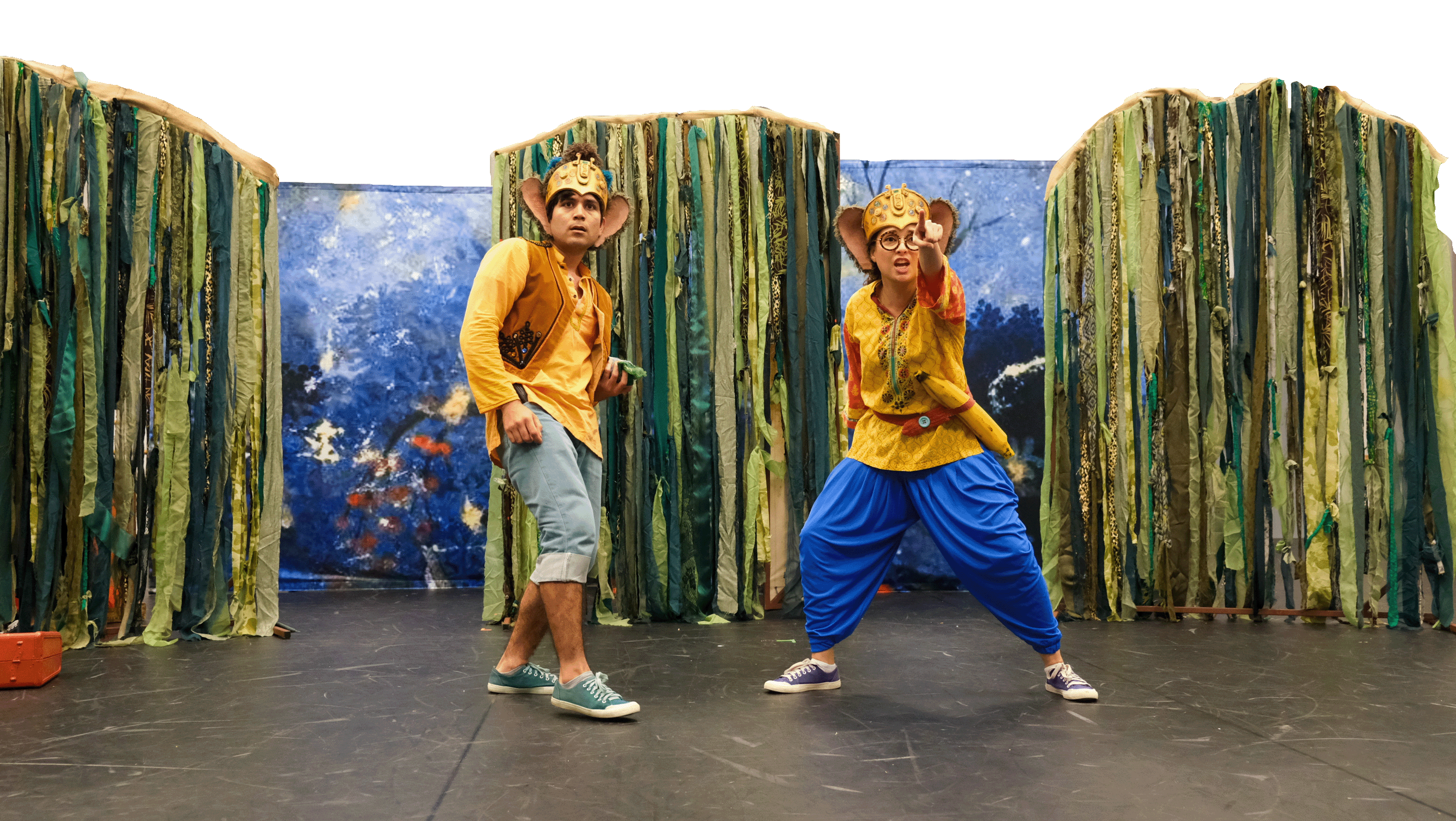Notes for a New World
Click here to read Part 1 / Part 3 / and Part 4 of GAME-CHANGING MOMENTS IN OPERA.
I recently attended a performance of Kamala Sankaram’s family opera Monkey and Francine in the City of Tigers at Miller Outdoor Theatre on a beautiful Houston fall morning. Sitting among 600 deliriously happy students, I was overcome with déjà vu reflecting on Sankaram’s artistic journey. As a half-Indian soprano from California, I feel a special kinship with her story.
Sankaram started composing for a simple reason: she wanted new music to sing. “For me, as a high soprano, there just weren’t a lot of new things out there,” she recalls. “Most of the new pieces that were being written were for much heavier voices than my voice. And so, if I wanted to do stories that had a contemporary resonance, then I would have to write them myself.”
She decided to jump over the barrier before her—the one that said she had to be one thing, and for that matter, that opera had to be one thing—and never looked back. She has now spent more than a decade both singing and writing music, not just for her voice type, but for the person who she is.
Kamala Sankaram grew up outside of San Diego, singing in choir and obsessing over musical theater. Hers was a multicultural household—Mom was white, Dad Indian—and a musical one, although she wouldn’t discover her love for opera until college at Sarah Lawrence, where several of the professors were members of the Philip Glass Ensemble.
“My mom loved classical music, but she listened mostly to piano and orchestral music, not opera,” she remembers. “And my dad listened to Carnatic music and Bollywood. I guess Bollywood is operatic, so maybe that’s where it comes from!”
Today it seems Sankaram was destined to lead Bombay Rickey, which she calls “an operatic Bollywood surf ensemble,” to serve as co-artistic director of the company Experiments in Opera, and to compose a collection of captivating works that combine Indian classical music and other genres with opera. But it took real courage to forge her own path.

At HGO we are proud to have commissioned Sankaram to write two uniquely American original works. In 2019 we debuted A Rose, her one-act chamber opera for our Star Cross’d web series, written with Misha Penton, about an Indian wedding in Houston. And in 2018 we staged the world premiere of her one-act opera for children, written with David Johnson, Monkey and Francine in the City of Tigers.
“It’s global,” Sankaram says about Monkey and Francine. “David and I wanted to make something that would be resonant for all the communities in Houston. So that includes people from India, and people from Africa, and Latin America. And all that makes its way into the score, to be something that anyone can hear and say, okay, there’s something in there that I recognize.”
Over the course of a career defined by its courage, composing for children may be the scariest thing Sankaram has done. “Writing for kids is terrifying, but also the most honest thing that you can do,” she says, “because they will let you know if they don’t like it.
“You have to do the thing that sticks, the thing that grooves, the thing that is going to keep their attention. That might mean doing something that seems simpler, or going for the joke, right? And that’s not actually a simple thing to do, to pull off humor and to keep the energy constant. But it’s a different priority than when you’re making a piece for, quote-unquote, art’s sake.”
If only more composers wrote with those priorities in mind, perhaps they too would have audiences dancing in their seats. Monkey and Francine’s tale of a pair of monkey siblings on an epic adventure has delighted both children and adults, during its initial run with HGO and afterward, on stages throughout the country. In fact, the opera has been so successful, we’ve brought it back this season for another tour through Houston with our Opera to Go! program.
We are grateful to Sankaram for changing the game, jumping the barrier, and in doing so, expanding the definition of what opera can be. “The goal for me, always, is to make it so that opera is not a foreign and inaccessible thing, because at its core, it’s human stories that are made accessible through music.”
She pauses to muse about Mozart, the way he borrowed from popular music of his era and incorporated references his contemporary audiences would understand. “I think it should be the same for us,” she says. “We should put in things that the audience is going to be familiar with, because that’s how we stay relevant, and that’s how we stay current.”
To learn more about our learning programs click HERE.